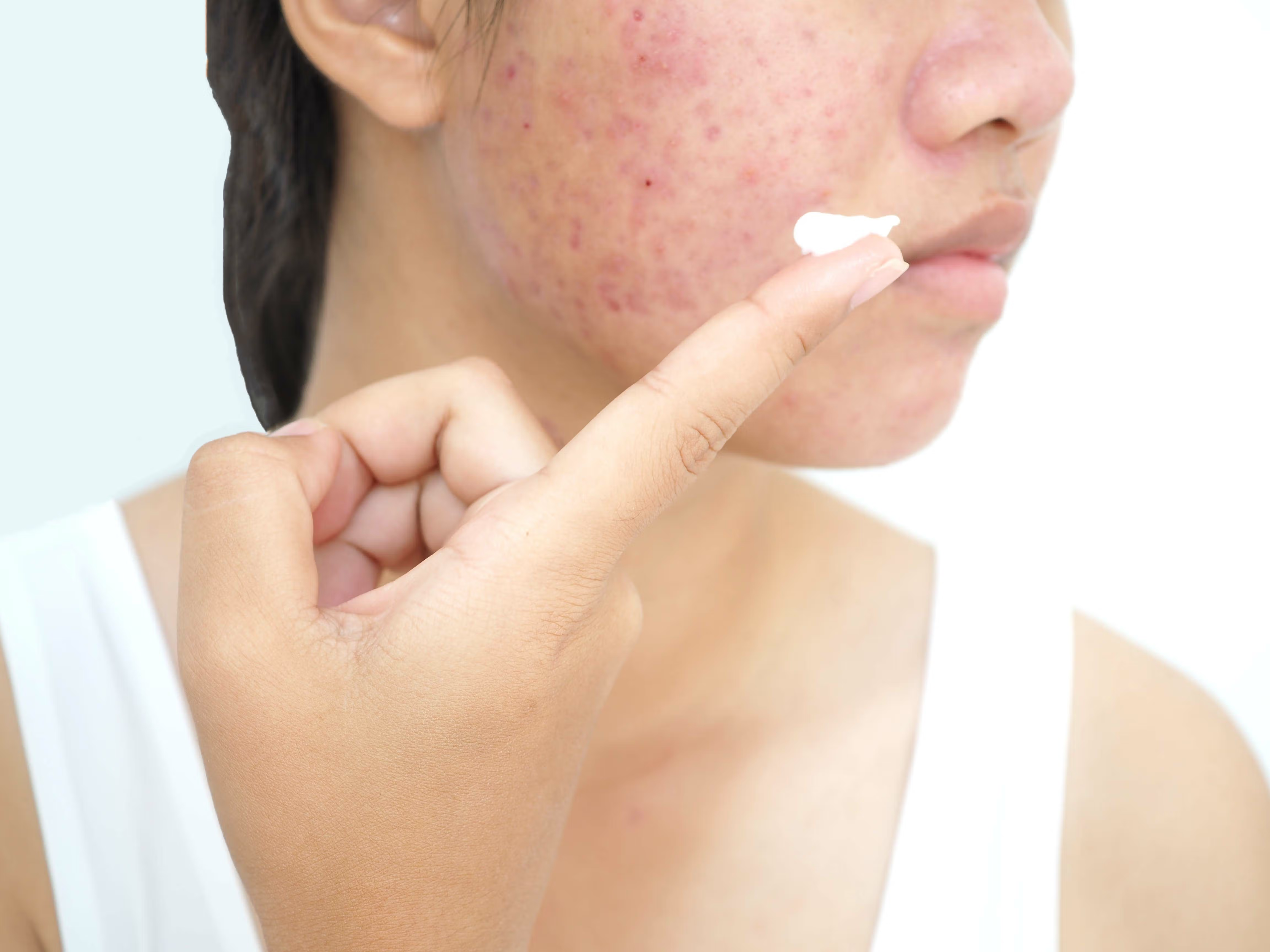- Case-Based Roundtable
- General Dermatology
- Eczema
- Chronic Hand Eczema
- Alopecia
- Aesthetics
- Vitiligo
- COVID-19
- Actinic Keratosis
- Precision Medicine and Biologics
- Rare Disease
- Wound Care
- Rosacea
- Psoriasis
- Psoriatic Arthritis
- Atopic Dermatitis
- Melasma
- NP and PA
- Skin Cancer
- Hidradenitis Suppurativa
- Drug Watch
- Pigmentary Disorders
- Acne
- Pediatric Dermatology
- Practice Management
- Prurigo Nodularis
- Buy-and-Bill
News
Article
Mediterranean Diet and Omega-3 Supplements Shown to Reduce Acne Severity
Author(s):
Adhering to a Mediterranean diet and incorporating omega-3 supplements led to noticeable improvements in acne severity, reducing both inflammatory and non-inflammatory lesions in patients.
Following a Mediterranean diet and taking omega-3 supplements may help reduce acne severity in patients with mild to moderate cases, according to new research published in the Journal of Cosmetic Dermatology.1 The study also showed that increased omega-3 levels led to improved clinical appearance and quality of life.
Diets high in processed foods and dairy products are known to increase the risk for acne, but there has been little research on how dietary interventions could help alleviate the severity of symptoms.
“In the pursuit of skin health, and particularly in a juvenile patient cohort, such as acne vulgaris, clinicians and patients are more than ever seeking treatment approaches that go beyond the conventional options of topical and systemic prescription medications,” the authors wrote. “As the understanding of the interplay between so-called exposome factors and skin health deepens, there is increasing evidence pointing to the pivotal role of nutrition in shaping dermatoses.”
Investigators from the University Hospital at Ludwig Maximilian University of Munich conducted a study to assess EPA and DHA levels in patients with acne, as well as to examine the effect of dietary interventions and supplementation on clinical severity. The single-center intervention study occurred over a 16 week period .
The study cohort included 60 patients who were not currently taking a prescription medication, of which 23 had acne comedonica and 37 had acne papulopustulosa. For the study, patients adhered to a Mediterranean diet that focused on plants and unprocessed, seasonal, nutrient-dense ingredients. Patients were encouraged to make homemade meals and limit ultra-processed foods, dairy products, and meat.
Study participants also took 2 different doses of oral algae-derived omega-3 supplements throughout the study period: 600 mg of DHA and 300 mg of EPA for weeks 1 through 8; and 800 mg of DHA and 400 mg of EPA for weeks 8 through 16. Patients were evaluated at 4 follow-up visits: baseline, week 6, week 12, and week 16.
At baseline, 98.3% of patients had an EPA/DHA deficit. Investigators found that mean HS-omega 3 index scores rose from 4.9% at the first follow-up visit to 8.3% at the fourth follow-up visit. Patients with acne comedonica had higher indices at the fourth follow-up visit compared to patients with acne papulopustulosa. There were also objective improvements in inflammatory and non-inflammatory lesions.
Additionally, although self-reported appearance in 4 patients worsened, patients’ overall quality of life improved. This was particularly seen in patients with acne papulopustulosa. No adverse events were reported during the study period.
Study limitations include an inability to provide each patient with meals and supplements due to time constraints, potential recall bias due to self-reported adherence to dietary recommendations, and a predominance of female participants, though the authors noted that this may not have significantly impacted the study’s results.
“Lifestyle interventions, including dietary recommendations, should not be considered in opposition to prescription medications, but rather as a valuable adjunct to any modern acne treatment plan,” Anne Guertler, MD, a corresponding author on the study, said in a release.2 “Future studies should build on the foundation laid by our current findings in a randomized, placebo-controlled design to improve dietary recommendations for acne patients.”
References
- Guertler A, Neu K, Lill D, et al. Exploring the potential of omega-3 fatty acids in acne patients: A prospective intervention study. J Cosmet Dermatol. 2024 Jul 10. doi: 10.1111/jocd.16434. Epub ahead of print. PMID: 38982829.
- Can omega-3 fatty acid intake affect acne severity? News Release. Wiley. July 10, 2024. Accessed July 15, 2024. https://www.eurekalert.org/news-releases/1050496
[This article was originally published by our sister publication, Drug Topics.]






